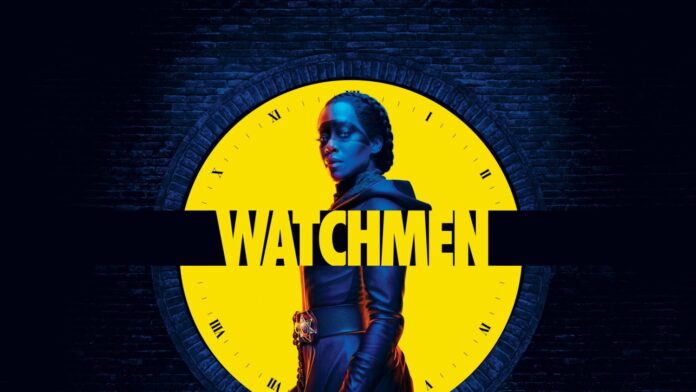WATCHMEN is one of the most famous DC Comics miniseries of all time. Created in the second half of the 1980s by Alan Moore and Dave Gibbons, it became an iconic story thanks to its ability to reflect the contemporaneity of the time. Extremely complex characters and a story of raw maturity distinguish the pages of Moore and Gibbons, which many years later also found a film adaptation by Zack Snyder. In 2019, a sequel signed by Damon Lindelof and HBO arrived on the small screen, airing in Italy on NowTV, continuing the canonical events of the comics thirty years later and adapting the context and developments to a parallel reality that has many points of contact with the present-day United States.
THE PLOT OF WATCHMEN
United States, 2019. Thirty-four years have passed since the mysterious event that struck New York in 1985: Dr. Manhattan is still in voluntary exile on Mars, and masked vigilantism has been illegal since 1977. Racial tensions are escalating across the country, partly due to President Robert Redford’s policies aimed at providing economic reparations to African Americans and other groups that have been victims of discrimination.
In the Tulsa area, known for the racist massacre in 1921, there is a notorious presence of the Seventh Cavalry, a mysterious white supremacist terrorist group that has obtained Rorschach’s diary, containing the truth about the 1985 incident. Disguised as the missing vigilante, the group targets government figures like police officers. To protect them and their families from possible reprisals, laws have been enacted allowing the police to operate undercover, like vigilantes including Angela Abar / Sister Night (Regina King), Wade Tillman / Looking Glass (Tim Blake Nelson), and Red Scare (Andrew Howard).
WHY WATCH WATCHMEN
The legacy of Watchmen is one that weighs heavily on the shoulders. It is a story that has imprinted a negative image of an era, capturing a snapshot of a society grappling with a burdensome past, often rejected in schizophrenic forms and shapes. It redefined the way to discuss vigilantism and superheroes, delving deep into their moral dilemmas, contradictions, doubts, and motivations for serving the United States.
The Watchmen television series starts with the awareness of having to reconfigure this methodology of analyzing its protagonists by implanting the original matrix in a country strained to the brink by social conflict. The alternative present imagined by Lindelof looks at the frayed fabric of the United States today and transports it to a symbolic place, Tulsa, a slice of the past that has not yet fully come to terms with its past. In fact, it hasn’t at all.
Watchmen once again proves to be an alternative magnifying glass on the present, a filter through which to discuss the major upheavals at the center of a more current debate than ever. In the original comics, there were the nuclear fears of the Cold War and the military sins of post-WWII USA; in this sequel series, there is the African American issue seen through the eyes of servants of a state that fails to protect them – because perhaps it is rotten where we least expect it – and therefore puts a mask on their heads.
WHY NOT WATCH WATCHMEN
The Watchmen miniseries, in nine episodes, is complex, layered, adequately respectful of the source material but not devoid of the ambition to put it at the service of a new context, new demons, and new specters. It manages to reach out, without forcing it, to key characters from the past. There are the unfathomable Dr. Manhattan, whose reasons and choices take a direction as symbolic as it is clear; the renegade genius of Adrian Veidt, Ozymandias, who simulated an alien attack in the comics’ finale (a Machiavellian Jeremy Irons); Laurie Blake / Silk Spectre, a former vigilante and Manhattan’s lover now a prominent agent in the anti-vigilante unit.
The communion with the past is organic, functional to draw the guidelines of a narrative that hides ever deeper layers of reading than those that appear on the surface. For this reason, the suggestion is to perhaps first recover the original comic books to fully understand the sense and logical scaffolding of the alternate reality of Watchmen’s United States. A effort between different media that may not be immediate, but would certainly pay off once you decide to immerse yourself in one of the best TV series of recent years, to watch, reflect on, and return to.

